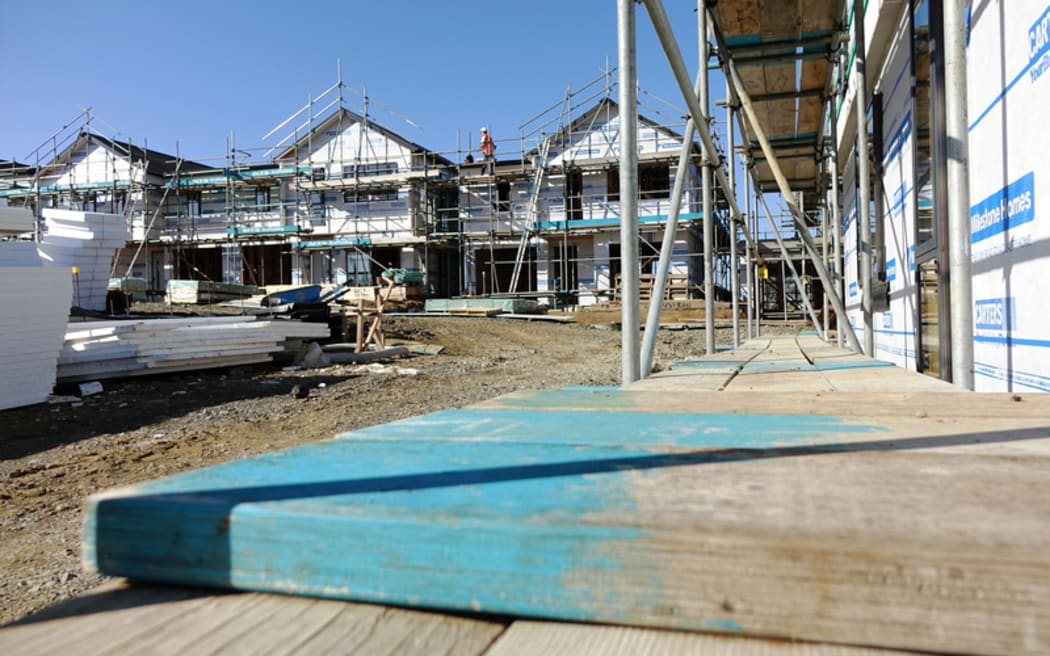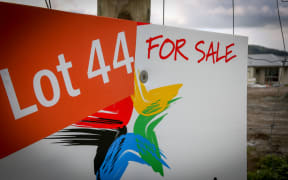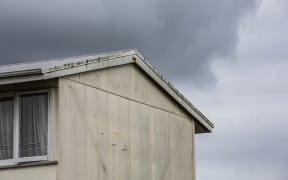ANALYSIS: Labour and National have forged a rare alliance on how to tackle a fundamental cause of Auckland's spiralling house prices - or have they ?
The Labour Party yesterday announced a policy demanding Auckland's urban growth limits be scrapped.

Labour's housing announcement prompted a flurry of support from unlikely political bedfellows, says Todd Niall. Photo: RNZ / Kim Baker Wilson
The zones have been in place since the 1990s and the latest urban plan is suggesting they remain, though in more flexible form.
Labour Party Housing spokesperson Phil Twyford described the limits as "the big one" among factors driving up Auckland's land and house prices.
If the government did not ensure the abolition of the proposed Rural Urban Boundary (RUB), a Labour Government would, he said.
The announcement prompted a flurry of support from unlikely political bedfellows - the Taxpayers Union, the ACT party and free-market think tank The New Zealand Initiative.
Even Finance Minister Bill English proclaimed there was now a parliamentary majority sending a strong signal to Auckland Council that central government could step in if it needed to.
But beneath the cries of "parliamentary majority", significant differences exist between how National and Labour are positioning themselves.
Labour has chosen now as the time to demand the removal of a planning policy which Auckland Council has argued is crucial to the future shaping of the city.
Its fate will be known by late August, when the independent hearings panel, which has spent 20 months considering arguments about the future shape of Auckland, completes the plan and the rules that should apply to housing location and density.
The panel recommends the plan to the Auckland Council, which has 20 days to vote on it, and limited grounds on which it can reject panel findings.
In not waiting to see what the panel recommends, Labour's position is akin to a rugby fan calling for a try to be awarded while the video ref is still watching the footage.
National, beneath the one-liners, is taking a more cautious position.
"The overall objective is not to attack particular bits of the planning, it's to ensure there's enough houses," Mr English told journalists seeking a response to Labour's announcement.
"The council gets to decide to what extent they do that, with greenfields outside the old Metropolitan Urban Limit, to what extent with density in the city; those are decisions best made by the Auckland Council."
Mr English did say that if the council failed to deliver enough housing capacity, the government could act.
Labour's pre-emptive strike on the still unknown shape of the Unitary Plan has left its veteran MP and Auckland mayoral candidate Phil Goff stopping short of unequivocal endorsement.
"I want to hear the debate about that, I think its good to have that debate, I welcome the statement. I think there will be fishhooks and we need to address those," Mr Goff told Morning Report.
The Government's talk of the council "being on notice" may be directed at councillors who in February revolted and voted down a new council submission to the panel, arguing higher housing density in some areas, than previously sought.
Auckland councillor Chris Darby and general secretary of the Environmental Defence Society Gary Taylor, also a former Auckland regional councillor, have both urged politicians to stay out of the debate until the proposed Unitary Plan becomes public and is voted on by the Council on 19 August.






